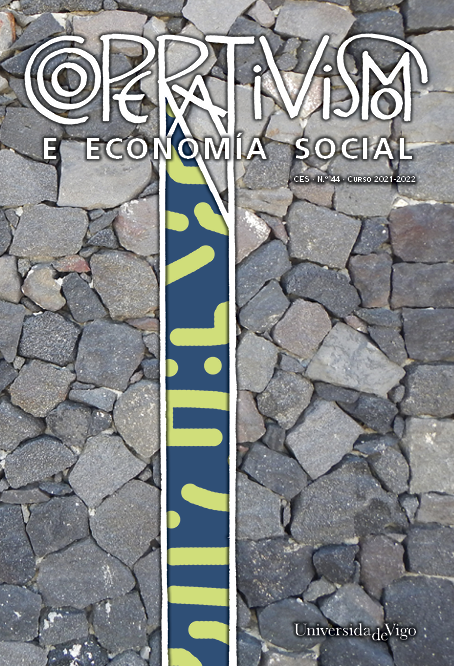LOS OBJETIVOS DE DESARROLLO SOSTENIBLE 2030 Y LA ECONOMÍA SOCIAL. ESTUDIO DE CASOS EN EL SECTOR COOPERATIVO E IDENTIFICACIÓN DE INDICADORES DIFERENCIALES DE GESTIÓN
DOI:
https://doi.org/10.35869/ces.v0i44.4373Palabras clave:
Sostenibilidad, cooperativas, evaluaciónResumen
This work has been carried out within the framework of the DICYT Research Project “Social Economy Organizations and the 2030 Sustainable Development Goals. A virtuous relationship?” code Nº 032170RR, financed by the University of Santiago de Chile, which focuses on making a specific link between the global and sectoral activities of social and cooperative economy companies with the 2030 Sustainable Development Goals, promoted since 2015 by the United Nations system.
Its central focus is the search for the preliminary construction of a set of generic and specific indicators to measure the impact and differential contribution of the Social and Cooperative Economy for the fulfillment of the SDGs, for which some of them have been selected.
The methodology that has been followed has been to select a limited group of SDGs in this first stage and, based on this, collect information on the same number of cases of cooperatives, and based on this information, propose an initial set of indicators for each case and then a group of global indicators, which allow measuring the differential contribution of the social and cooperative economy in each of them.
The medium-term global objective is to socialize and make this methodological proposal available at a general level so that it can be applied and perfected by those who are working within the framework of the promotion of the SDGs 2030, thus achieving qualitative and quantitative information cumulative.Keywords: Participation, members, cooperatives, working conditions, Law of Cooperatives of Euskadi.



